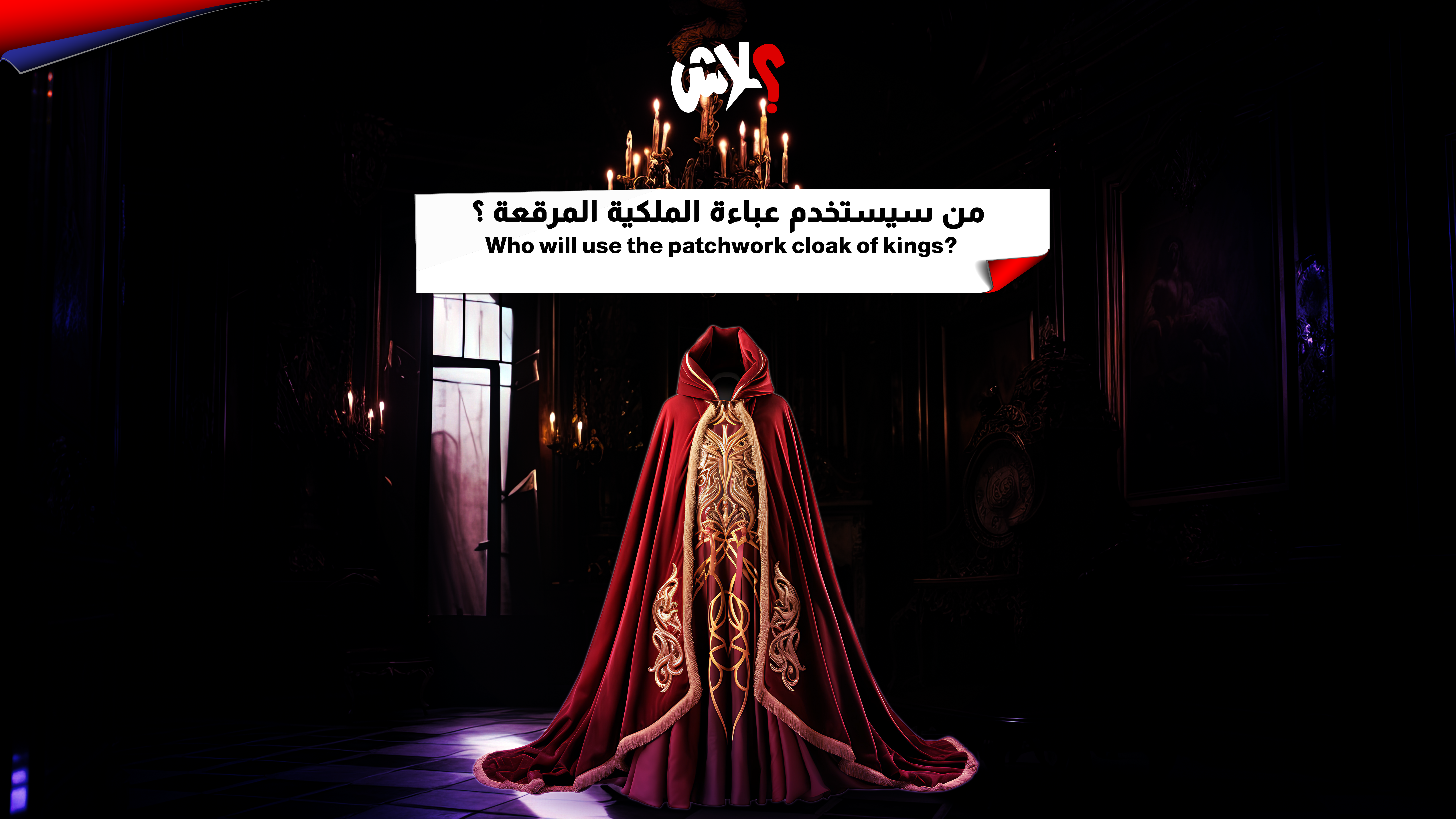Who Will Wear the Patched Cloak of Monarchy?
Many Libyans still believe that anyone who wants to present themselves to them must be part of the sands of this land, not addressing them from the City of Fog, where the cold kills everything warm. The campaign for the return to constitutional legitimacy continues, and Prince Muhammad Al-Hassan Al-Rida Al-Senussi still meets, consults, and advises his followers on this return, which he sees as auspicious. This brings us back a few years to when the term "constitutional legitimacy" emerged. In 2016, Tripoli woke up to inscriptions on its buildings calling for the return of the constitutional monarchy, asserting that the prince is the rightful and legitimate heir. Many sources indicated that this campaign was funded by Kuwait, with expenditures in the millions of dollars, led by Haitham Al-Tajouri, the commander of the Tripoli Revolutionaries Brigade at that time. Meetings also began for a group that called itself the Constitutional Legitimacy Movement, holding numerous meetings in Tripoli, Zliten, and Benghazi, with statements demanding the return to the kingdom's constitution without specifying which constitution they wished to return to. However, the campaign did not succeed.
Today, in 2024, this campaign returns dramatically, featuring scenes of tribal elders, city dignitaries, and paid political activists, including travel tickets and accommodation in Turkish hotels, appearing in classic photos with the Crown Prince, discussing the return to the alleged legitimacy. According to widespread rumors, this campaign's expenses were also funded by Qatar, Kuwait’s sister state, which funded the first campaign, raising questions that need detailed analysis.
Why are Kuwait and Qatar funding these campaigns, and what do they stand to gain?
Undoubtedly, the goal of these two countries in funding is not to achieve stability in the Libyan political scene or to end the political stalemate and transitional stages or political agreements. Nor is the goal behind this funding the interest of the Libyan people, as we hear repeated from time to time by all countries intervening and involved in the Libyan political affair. The goal behind this support, which we assert is more realistic and closer to the truth, is to strengthen the continuity of the monarchical system and hereditary succession in Arab countries, especially with the changes the Arab world is witnessing and the changing mindset of the young Arab, who now believes that the era of human deities is long gone, and that people have the right to choose their ruler, a ruler with a convincing program whose term and authority are strictly defined by immutable constitutional texts.
Another small faction says the goal of the funding is to create a different current that could help stir the stagnant waters in the Libyan political scene, taming the conflicting political parties to sit and dialogue and find a solution to the crisis, thereby allowing the funding countries to achieve their interests. However, we doubt that the prince would be used as a puppet, a scarecrow dressed in clothes used to scare birds or attract bulls. But what concerns us is another question.
Does the prince think he is the solution? And how did he deduce that 40% of Libyans want his return and the return of constitutional monarchy?
The prince recently appeared on a satellite channel promoting this return, stating that 40% of Libyans want his return and the return to constitutional legitimacy. This statement made us question this claim, as 40% is not a small percentage. If we say that the Libyan population is 7 million, this means that about 2 million Libyans want him and the return to constitutional legitimacy, a number not to be underestimated or overlooked. But what return do they want, the 1951 constitution or the 1963 one? We assert that this number will turn against itself when the year is specified because the gap between them is vast. Some want it federal because they are tired of the oppressive centralization embraced by Tripoli. Logic dictates that if we are to return, it should be to before September 01, 1969, and we cannot time travel to reach December 1951.
Besides the return, the prince overlooked 60% of Libyans, equivalent to about 5 million people, who do not want this return, including the Bushnaf advisor, his entourage, the Rajma leader, his sons, their battalions, party leaders, and their members. Do they not form a significant majority that cannot be underestimated and are they not the dominant force if this return were to be decided by a popular referendum?
We must also not forget the clouds of suspicion surrounding the Prime Minister of the National Unity Government and his support for this movement to ensure he remains its approved Prime Minister, prolonging his corrupt influence.
We cannot overlook the statements of the campaign's activists who have stated that the goal of this campaign is to return to constitutional legitimacy as a temporary phase during which the prince would return to maintain institutional stability, and thereafter open the door for elections and a referendum to choose the state's identity and system of governance. This makes us assert that these statements go against the intent and goal, as it is illogical for the return of the exiled prince to be a transitional phase.
After this narrative, we have deconstructed the details of this campaign through brainstorming to reach the conviction that any project must be based on a realistic strategy with defined goals and objectives, inclusive of all Libyans and selected through a single gateway: the ballot box. The prince constitutes a crisis with many complications and suspicions surrounding it, leading us back to the old saying, "I brought you, O Abdul-Mu’in, to help me, only to find you, O Abdul-Mu’in, needing help yourself."

